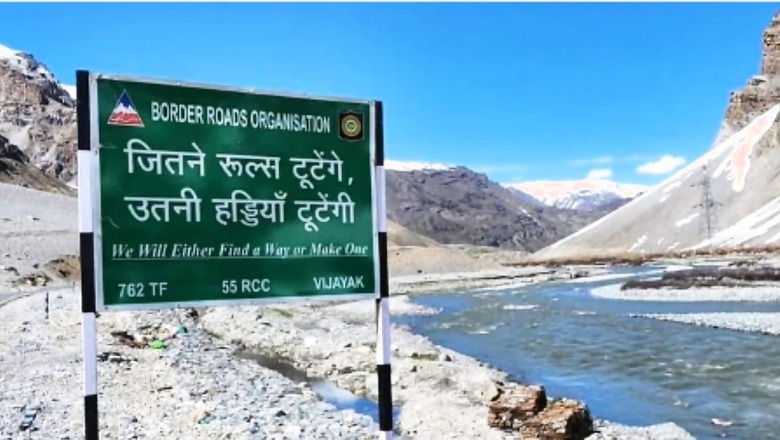
views
Over the decades, organisations like Indo-Tibetan Border Police (ITBP) and Border Roads Organisation (BRO) have worked hard to build a road network in some of the most remote parts of India. After these roads were made open to the public, many tourists ventured out to these destinations on newly built networks. Unlike on city roads, a driver needs to be extra cautious on hostile mountainous roads. Usually, the speed limit here is much lower than the roads in the plains.
Unfortunately, despite repeated warnings people continue to violate these rules. To make sure, these rules are followed, some road signs and quirky boards have been placed by ITBP and BRO on the route. Many of these also include not venturing into small lakes and ponds that come on the way so that the sanctity of these water sources is maintained. Now a photo of one such road sign is going viral.
On Monday, an X user shared a photo of a BRO road sign that said, “Jitne rules tutengay, utni haddiyan tutengi (The more rules you break, the more bones will be broken.)” This photo was captioned, “Warning should be like this.” The post has so far gathered over one lakh views.
Commenting on this post, an X user wrote, “Bhai saabh yeh Warning hai ya Dhamki (Brother, is this a warning or a threat.)”
Bhai saabh ???????????????? yeh Warning hai ya Dhamki ????????????— Santosh Herkal (@evilmady) June 3, 2024
Someone else wrote, “Warning should be like this for everything everywhere across India.”
Warning should be like this for everything everywhere across India— R???? (@twitrboyy) June 3, 2024
An X user recalled, “One more I saw in Spiti..Don’t be a Gama in the land of Lama.”
One more I saw in Spiti..'Don't be a Gama in the land of Lama'— Billu (@tandoor_murga) June 3, 2024
The above-mentioned sign had the words “55 RCC Vijayak” written on it. This shows that the photo was taken on the way to Ladakh. In May 2023, AIR News reported that the BRO had concluded Project Vijayak road project in Kargil. BRO used the indigenous Rejupave road construction technology for making the high-altitude roads. The Rejupave technology is developed by India’s oldest road research organisation, CSIR-Central Road Research Institute. It is beneficial in constructing high-altitude bituminous roads at low and sub-zero temperature conditions.



















Comments
0 comment